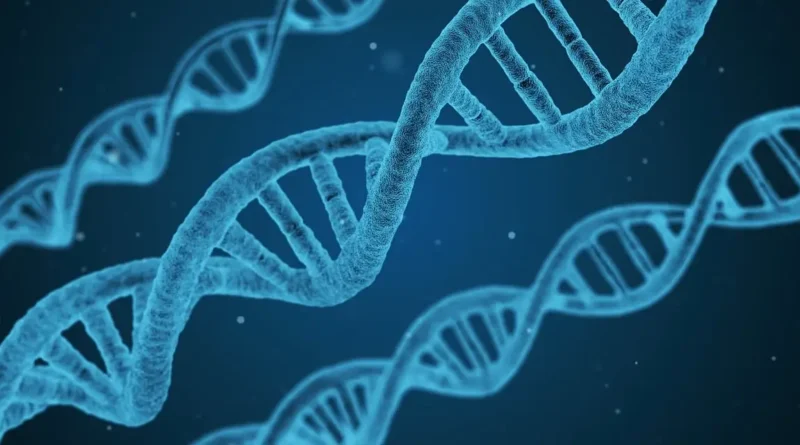Debunking The Myth Of Evolution
Title: The Distinction Between Evolution and Adaptation: A Critique of Evolutionary Theory
Debunking The Myth Of Evolution. Evolution has long been pushed as a fundamental framework in biology, often presented as the unassailable explanation for the diversity of life. Yet, the lack of any evidence supporting the theory gives rise to an ever growing body of researchers who point out that evolution is not supported by evidence, but is increasingly pushed by the evolutionist cult. Instead, they contend that what is often perceived as evidence for evolution is actually adaptation, an observable and measurable phenomenon. Central to this argument is the distinction between evolutionary theory and the true science of adaptation, and the misunderstanding surrounding DNA and genetic code.
In this article, we will explore the primary argument that there is absolutely no hard evidence for evolution—defined as the gradual addition of new genetic information over time. We will contrast this with the science of adaptation, the process by which organisms adjust to their environments using pre-existing genetic information. Furthermore, we will delve into the claim that the DNA of various organisms, such as wolves and chihuahuas, contains the same fundamental genetic information, merely arranged differently, with no additional code being added or removed.
Table of Contents
Evolution vs. Adaptation: A Misunderstanding
Debunking The Myth Of Evolution. One of the key points of confusion in the debate over evolution is the conflation of two distinct biological processes: mythical evolution and science based adaptation. In everyday conversation, these terms are often used interchangeably, but they refer to very different phenomena.
Evolution, according to the theory established by Charles Darwin and later expanded upon by modern scientists, refers to the gradual change in a species over long periods of time, resulting from random mutations that add new genetic material and natural selection. This process, it is claimed, eventually leads to the formation of entirely new species. For example, according to evolutionary theory, all life on Earth evolved from a single common ancestor over many centuries through a process of accumulating beneficial mutations that increase genetic complexity.
Adaptation, on the other hand, refers to the process by which organisms adjust to their environments using existing genetic material. This is an actual scientifically observable and measurable phenomenon. For example, certain species of birds may develop slightly longer beaks if they live in an environment where food is found deeper in the ground. However, no new genetic information is added in this process; rather, the genetic traits that are already present become more prevalent due to selective pressure. Adaptation, in this view, is a fine-tuning of an organism to its environment, not a process that fundamentally changes the organism into a new species.
Debunking The Myth Of Evolution. Proponents of the idea that evolution lacks evidence often point out that adaptation is not evolution in the grand Darwinian sense. While adaptation is widely observed and scientifically documented, they argue that there is no solid evidence that adaptation leads to the addition of new genetic material or the transformation of one species into an entirely different one.
No Evidence of New Genetic Information
Debunking The Myth Of Evolution. A critical argument against evolution is the idea that there is no empirical evidence showing the addition of new genetic code to an organism’s DNA. In evolutionary theory, mutations are said to be the driving force behind evolution. Over time, small, random mutations that benefit an organism are supposedly passed down and eventually lead to new traits and, ultimately, new species. But for this to work, these mutations would need to add new, beneficial genetic information.
However, scientific observations contradict the mythical theory of evolution as it points out that this has not been observed in nature or in controlled scientific experiments. On the other hand, what has been observed are mutations that alter existing genetic code—rearranging or degrading it—but there has never been evidence that entirely new, functional code is being added. The common critique is that while organisms exhibit genetic variation and adaptation to their environments, the underlying genetic material remains fundamentally the same.
An example often cited to explain this phenomenon is the comparison between wolves and chihuahuas. Chihuahuas and wolves share the same genetic code, but their physical traits differ drastically due to the arrangement of that code. In both cases, the genetic code that defines them as canines is present, but in wolves, the code is arranged to produce a large, robust animal suited to hunting in packs, while in chihuahuas, the same basic code is arranged differently to produce a small, domesticated animal.
The chihuahua did not evolve into something fundamentally different from a wolf by adding new genetic information; it simply exhibits different traits because of the expression and arrangement of existing genetic information. This is a form of microevolution—small changes within a species due to variation in existing genes—rather than macroevolution, which implies the formation of entirely new species via new genetic code. The proponents of intelligent design or creationist perspectives argue that microevolution and adaptation disprove the overarching theory of evolution.
Adaptation and Natural Selection: Limited in Scope
Debunking The Myth Of Evolution. In the case of natural selection, the process itself does not generate new genetic material; rather, it works on existing variation within a population. If a particular trait provides a survival advantage, individuals with that trait are more likely to reproduce, passing that trait on to future generations. Over time, this can lead to significant changes in the population, but again, no new genetic code is being introduced.
Consider the case of antibiotic-resistant bacteria. Many people point to the development of resistance in bacteria as evidence of evolution. However, upon closer examination, it becomes clear that bacteria do not gain new genetic material when they become resistant to antibiotics. Instead, the bacteria either lose certain genes or experience a mutation that disrupts an existing gene. While this change may benefit the bacteria in an environment with antibiotics, it does not involve the addition of new genetic code.
Critics argue that natural selection has built-in limitations. It can only work with the genetic material that is already present in a population. No matter how much selective pressure is applied, a species cannot evolve beyond the genetic information it already possesses.
The Chihuahua-Wolf Analogy
Debunking The Myth Of Evolution. To further illustrate the point, the chihuahua-wolf analogy is often used to explain how variations in traits within a species do not support the idea of new genetic information being added to DNA. Both chihuahuas and wolves belong to the species Canis lupus, and they share the same basic genetic code. The vast difference in their appearance and behavior is due to selective breeding and variations in the expression of existing genes.
This selective breeding did not add any new genetic information to the chihuahua, rather, it isolated and emphasized certain traits that were already present in the genetic code. For example, size, coat length, and temperament are all traits that can be manipulated through breeding, but no new DNA was introduced in the process. The genetic code of a chihuahua and a wolf is the same, only rearranged to produce different traits.
Proponents of intelligent design argue that this demonstrates how the diversity of life on Earth can be explained by the expression of existing genetic information, rather than the creation of new information via random mutations. Just as selective breeding has not resulted in the creation of new genetic material in dogs, they argue that natural processes cannot create new genetic material in nature.
Debunking The Myth Of Evolution
Conclusion: Evolution as a Theory Without Conclusive Evidence
Debunking The Myth Of Evolution. In conclusion, critics of evolutionary theory argue that there is no scientific evidence to support the idea that new genetic information can be added to an organism’s DNA through natural processes. Adaptation and natural selection, while observable, do not involve the addition of new genetic code, but rather work within the framework of existing genetic information. The variation observed in nature—such as the differences between chihuahuas and wolves—can be explained by the rearrangement of existing genetic code material, not by the creation of new code.
Thus, from this perspective, the evidence supports adaptation, not evolution in the grand Darwinian sense. The lack of empirical data showing the addition of new genetic information suggests that evolution, as it is commonly understood, remains a theory pushed by atheists rather than an established fact. Adaptation, not evolution, is the only scientific explanation for the diversity of life on Earth. It’s interesting to point out the fact that it’s the democrat party that indoctrinates kids at school with their atheistic theory of evolution. As they simultaneously indoctrinate the kids with satanic propaganda. Everyone should give a great deal of thought to why it’s no coincidence. Never stop searching for the truth and you will eventually find it.




